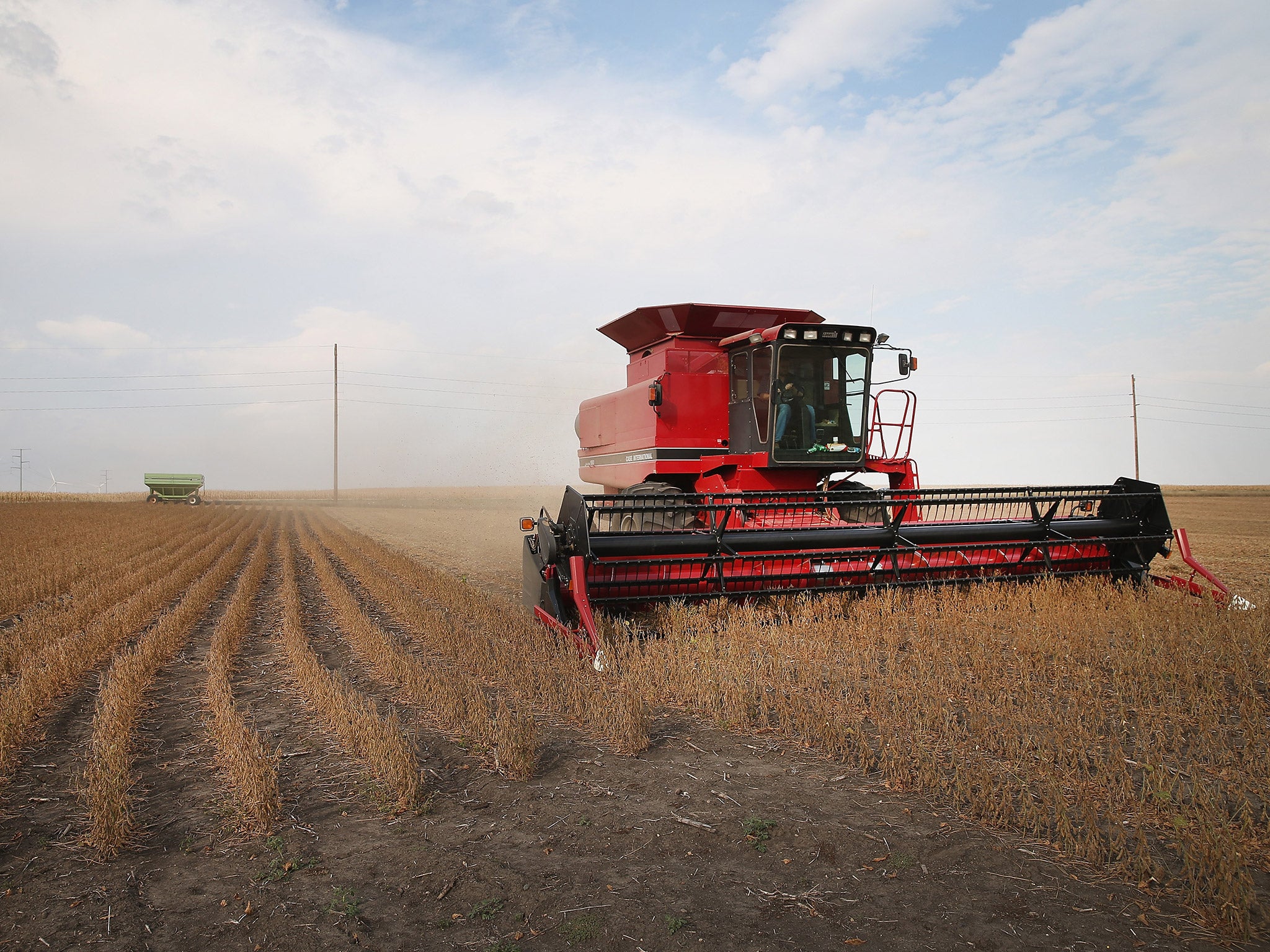Your support helps us to tell the story
From reproductive rights to climate change to Big Tech, The Independent is on the ground when the story is developing. Whether it's investigating the financials of Elon Musk's pro-Trump PAC or producing our latest documentary, 'The A Word', which shines a light on the American women fighting for reproductive rights, we know how important it is to parse out the facts from the messaging.
At such a critical moment in US history, we need reporters on the ground. Your donation allows us to keep sending journalists to speak to both sides of the story.
The Independent is trusted by Americans across the entire political spectrum. And unlike many other quality news outlets, we choose not to lock Americans out of our reporting and analysis with paywalls. We believe quality journalism should be available to everyone, paid for by those who can afford it.
Your support makes all the difference.The last 12-month period has seen the highest global temperatures on the planet, according to figures from the National Oceanic and Atmospheric Administration (NOAA), and, even though we’re barely halfway through, it’s clear that 2015 is set to be record breaking year.
Not since the 1970s have land and sea measurements dropped beneath the expected average and all the data from environmental watchdogs points towards a steady rise currently at one degree C above where it should be.
It might seem like just a small amount but yet the geographical impact is reported on a daily basis at the polar ice-caps and coastal regions, and what about the direct human effects? Just in case you need enlightening on how climate change projections like these would affect you and yours, take a look at these five reasons how we could be boiling ourselves to death.
Disease: malaria will be everywhere
Vector-borne diseases like dengue fever and malaria are expected to surge as temperatures go up with what are currently temperate zones becoming suitable habitats for the insects. In addition, more extreme weather conditions, such as the storms and flash floods expected to accompany the change, have already been shown to expand the larval habit and food supply for mosquitos.
Conservative estimates are that that climate change will account for a 5-10 per cent rise in the risk of malaria by 2100 and, that by just 2020, the UK will be one of many new areas where the disease will arise. Despite efforts from the World Health Organisation, large scale attempts at malaria prevention have only been effective in a few regions. Turn up the temperature and things will get a lot worse everywhere.
Food: our crops don’t like the heat
Crops like wheat, corn, soybeans and rice are incredibly sensitive to temperature. Recordings of mean summer temperatures in the US - one of the world's big cereal producers - have already shown how just a degree or two can cause an enormous drop in yields.

According to the American Climate Prospectus, by the end of the century, it's expected that crop yields will be down by as much as 85 per cent across much of North America. With more mouths to feed on an ever overcrowded planet, these projections of food supply from North America would be a disaster.
Migration: masses will be homeless
Through war, failing crops, the loss of coastal areas and natural disasters, there is a huge cost to those individuals caught up in what’s going at ground level, and to everyone around them too.

Migration, both within and between nations, is on an upward trend and a rise in global temperatures would likely compound it as people search for food, shelter and even just the space to live. Over 20,000 people were newly displaced in 2012 with the figure expected to rise to 25,00 this year.
War: more heat, more conflict
The relationship between conflict and temperature is a far less direct one but one that’s been documented nonetheless in at least three separate regions. One study concerning East Africa, published in the journal Science, linked just a one degree rise in mean temperatures to an 80 per cent increase in the risk of conflict

US government think tanks have described climate change’s impact as a ‘threat multiplier’ which would exacerbate some of the big drivers of conflict including mass migration the competition for resources.
Cost: everything gets expensive
The more extreme weather conditions associated with a temperature rise could cause the cost of energy to soar. Off-shore rigs and other key structures are easily ravaged by hurricane conditions, as was the case with Katrina, and it’s also been predicted that there could be a decrease in river flow through drought which would make hydro-electric power virtually non-existent.

Add the cost of energy into the scarcity of land, food and clean water, plus the issues of war, and it's unsurprising that the DARA environmental agency has topped it all off with a warning on how the cost per person will change depending upon what global action - or lack of it - will be taken.
So, you might not care about polar bears but it all looks a little different on a human scale.
.gif)
Join our commenting forum
Join thought-provoking conversations, follow other Independent readers and see their replies
Comments